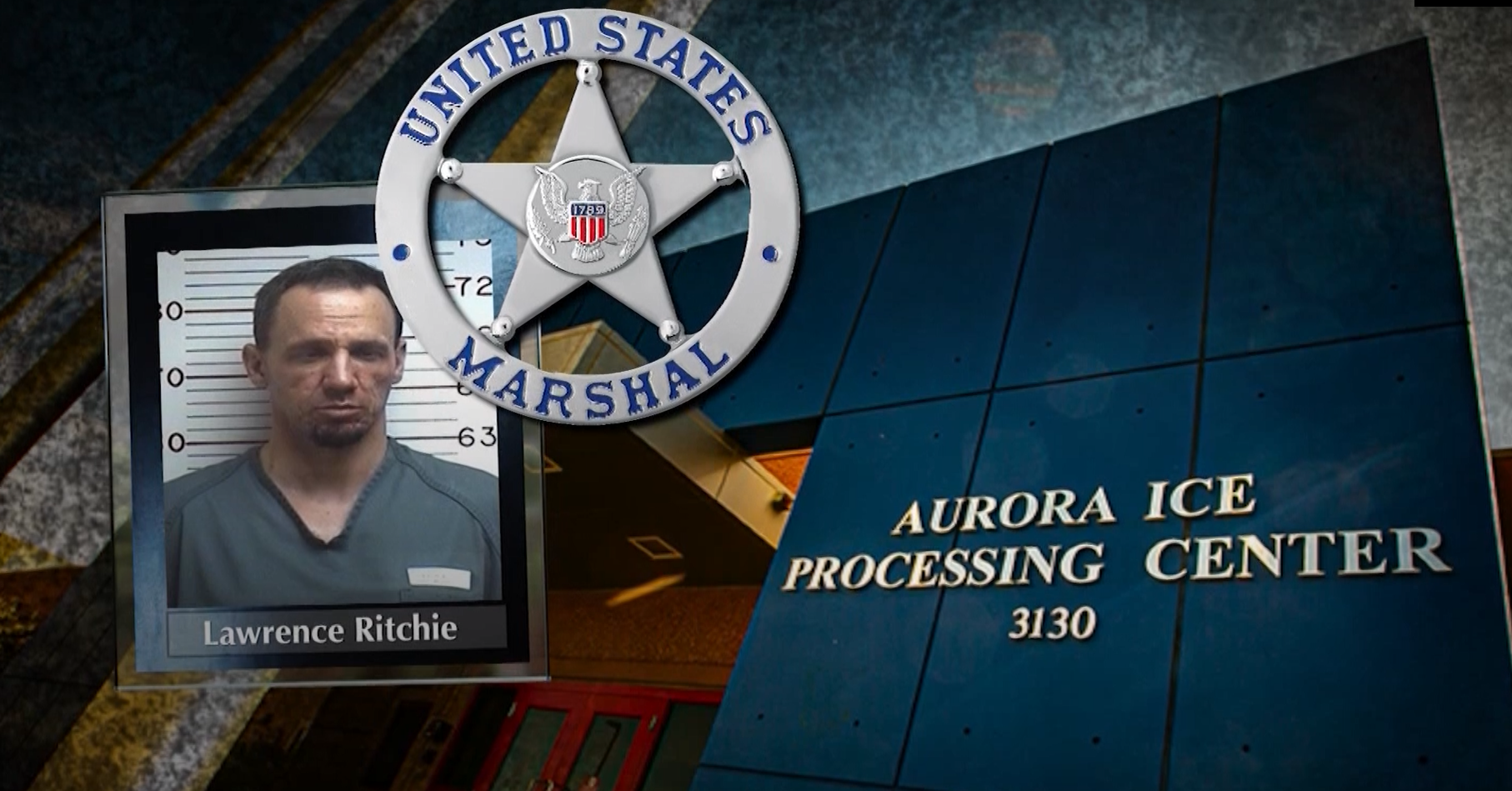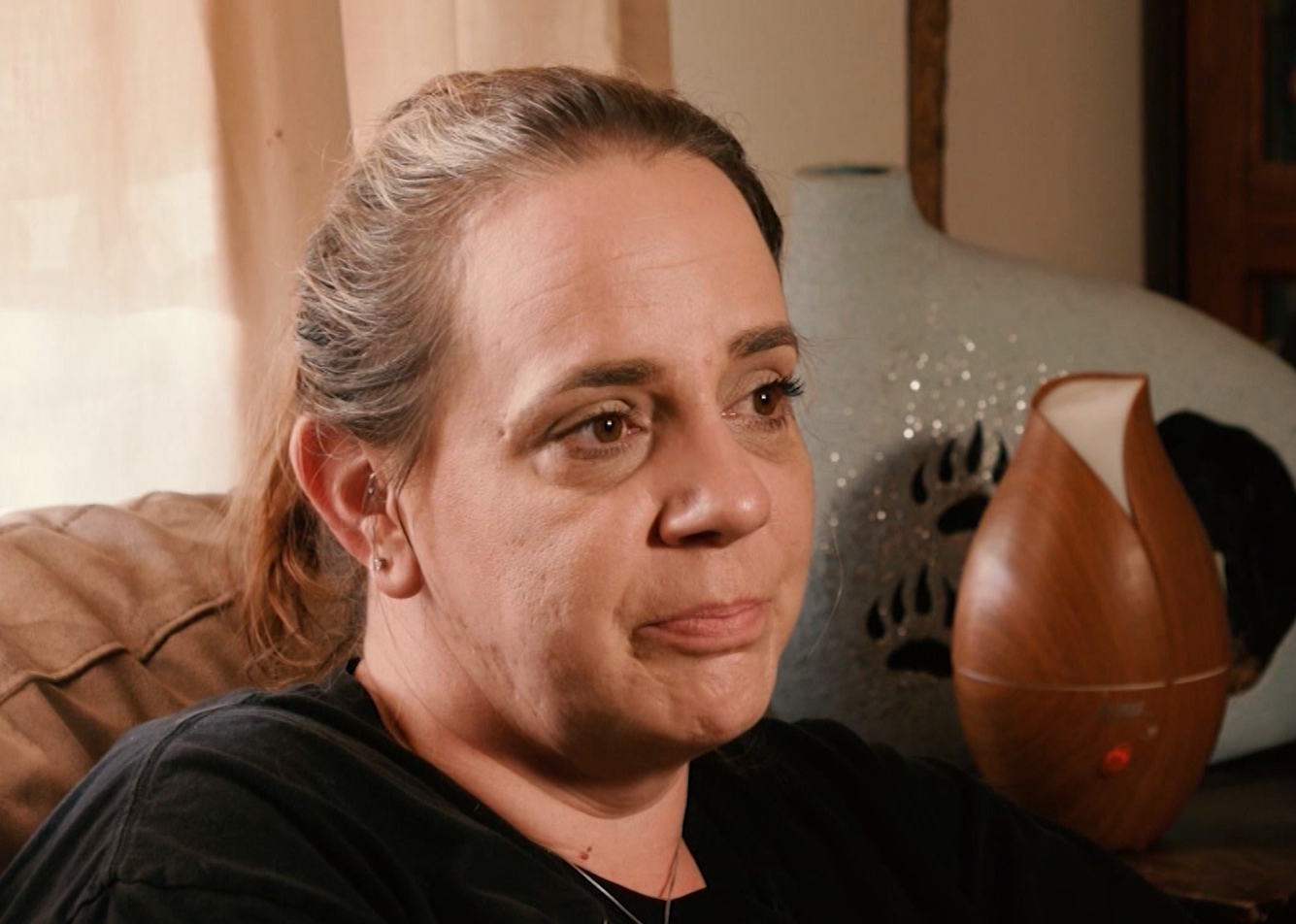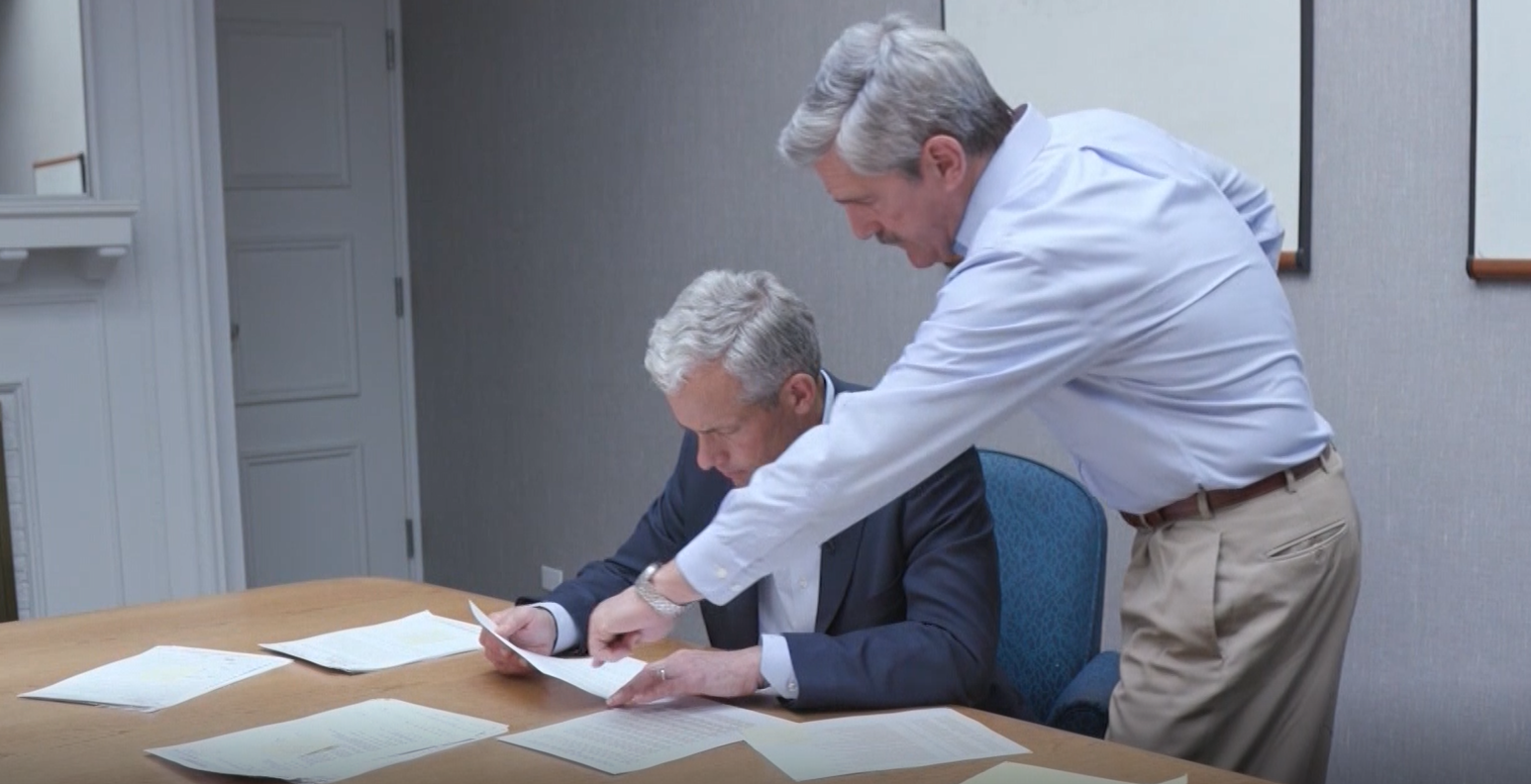Police often do not investigate alleged crimes in Aurora's contract detention center

Allegations of sexual abuse and physical assaults are going unchecked by law enforcement at the controversial Immigration and Customs Enforcement detention center in Aurora, a Rocky Mountain PBS investigation has found.
There is a written agreement confirming investigations of potentially criminal allegations in the center are the responsibility of the Aurora Police Department, but reports reveal APD often leaves the actual investigation up to the private facility staff, who are not police officers.
RMPBS shared its findings with Colorado’s former U.S. attorney John Walsh, who agreed to review gathered police reports involving the Aurora facility.
“There are multiple cases here that jump out at me as.. you can't explain why an investigation didn't happen,” Walsh said. “They were cases that, on the face of them, deserved an investigation and probably a prosecution.”
In response to the RMPBS findings, APD said it is reviewing its procedures in conjunction with Immigration and Customs Enforcement (ICE.)
The detention facility is operated by a private for-profit company, the GEO Group, which holds contracts to hold detainees who are in the custody of ICE and the U.S. Marshals Service. GEO's private detention officers are not required to gain Peace Officer Standards and Training (POST) certification in Colorado.
"They were just running up to him and stomping on him”
RMPBS spent months obtaining and reviewing Aurora police call records and police reports to understand how potentially criminal allegations are handled inside the immigration detention center.
One incident involved Lawrence Ritchie, a U.S. citizen held in the Aurora detention center in the custody of the U.S. Marshals Service while awaiting trial for bank robbery.
While the majority of the people held in the detention center are held by ICE for immigration matters, the U.S. Marshals also have a contract with the GEO Group to hold up to 320 federal criminal defendants awaiting their court dates.
Records show Ritchie suffered serious injuries after being “stomped” by a group of other inmates in 2018, but Aurora police did not investigate.
In a 911 call obtained by RMPBS, a facility nurse called for an ambulance three hours after the beating. She tells a dispatcher Ritchie “got beat up really bad. He has a head injury.”
When a police officer responded to the facility, her report shows a GEO staff member asked her not to speak to Ritchie because “the GEO facility will handle the assault charges in-house.”
Body camera video shows a GEO detention officer describing surveillance video of the attack to the responding police officer.
“You could see a lot of them, they were just running up into him and stomping on him,” the GEO staffer says.
In the APD body camera video, a GEO staff member said he would call back if Ritchie wanted to press charges, but expressed skepticism he would want to do that since he was likely headed to prison.
Ritchie, who is now serving time in a federal prison, told RMPBS he has no memory of any investigator asking if he wanted to pursue a case against his attackers or interviewing him about what happened. He said he’s not sure how he would have answered if he had been asked, because prison “code” is to stay quiet in those situations.
“I’ve been in prison all my life and that’s not something you do,” Ritchie said by phone. “But you never know what I might have said at the time. I was hurt pretty bad and I was pretty angry.”
He said the attack happened after he argued with another detainee over a handball game. Records indicate Ritchie was the only one injured.
“Being in prison or not, it's uncalled for," Ritchie’s sister Tracy Bates told RMPBS. "Somebody should have been held accountable. You can't just go around, you know, five, six, seven men, beating up on one person.”
Bates said she visited her brother in the detention center about a week after the beating and was startled by what she saw.
“His nose was broke. Both of his eyes were black and the eyelid was torn in half,” she said. “His ribs were broken and he had a real bad head injury.”
The APD body camera video indicates the Aurora police officer who responded to the detention center did not look at the surveillance video of Ritchie’s beating or take a copy of the video for evidence. The U.S. Marshals Service did not release the facility surveillance video to RMPBS in response to a Freedom of Information Act request.
“I hope nobody else has to endure that kind of physical pain and go through what he went through, because [his attackers] are scot-free,” Bates said.
RMPBS reviewed two other 2018 cases in which people detained by the U.S. Marshals were taken to the hospital with broken bones after attacks by other detainees. The reports indicated the cases did not result in criminal charges because police reports said the victims did not want to cooperate.
Aurora police said they investigate incidents that are criminal in nature, but added, “An example of complaints that are determined to be not criminal in nature would be when a lack of evidence exists to pursue criminal charges, or the victim is unwilling to participate in the prosecution of the case.”
Walsh, a former U.S. Attorney in Colorado, said it is problematic to rely on a victim to “press charges,” especially in a detention setting. Walsh said it is the state who brings charges, not the victim.
“A district attorney, or a prosecutor on the federal side, really has to look out for the interests of society as a whole, and that may mean bringing the case, even if the victim is lukewarm or unwilling to cooperate,” Walsh said. “Often someone who's being detained doesn't feel comfortable pursuing a case because of the power situation they're in. You've got to be willing to proceed.”
Walsh emphasized a case in which a U.S. Marshals detainee with dwarfism suffered a broken clavicle after being knocked down by another detainee, according to the police report.
“That's exactly the kind of person who gets victimized in these sorts of circumstances. They can be targeted by bullies,” Walsh said. “There's a particular need to protect, when an incident like this happens, to send a clear message within a facility. ‘No, no, no. We don't put up with that. You're going to go to a different kind of jail if you do that kind of thing."
Records show police did not pursue that case because facility staff told the responding APD officer that the detainee did not want to press charges.
In the third U.S. Marshals assault case, records show an inmate suffered a cracked skull and a brain bleed after being punched by another inmate while they played handball. Police did investigate, but did not pursue an arrest after the victim told officers from his hospital bed that he did not remember the attack and did not want to press charges.
The other inmate admitted to police he punched the victim because he had been "hostile," and a facility surveillance camera captured footage of the incident:
The Aurora police report is dated eight days after the assault happened. When Aurora police responded, body camera video shows a GEO staff member saying they delayed calling the police because they were waiting for the Marshals Service to determine who should report the incident.
The U.S. Marshals Service did not answer questions about specific cases, citing privacy concerns, but said GEO has generally made the required notifications to USMS when inmates are injured.
The GEO Group did not answer questions about specific incidents, instead sending a statement reading:
“We take all incidents of assault or violence of any kind seriously, and safety is our top priority at all of our facilities. At the Aurora ICE Processing Center, the U.S. Marshals Service is notified of each incident of this kind involving individuals in USMS custody. A USMS detainee who allegedly commits a criminal act is referred to the Aurora Police Department. The USMS may also refer the incident to the U.S. Attorney's Office for federal prosecution, if deemed appropriate. The facility will process the incident administratively and follow through with disciplinary actions if criminal charges are not pursued. We are unable to comment on specific cases or incidents.”
A spokesperson for Colorado’s U.S. Attorney’s office told RMPBS the office had no record of a case involving the beating of Lawrence Ritchie or any other prosecutions related to the GEO facility.
Detainees who allege sexual abuse rarely interviewed by police since 2017
RMPBS also reviewed four years of reports from calls involving sexual abuse and misconduct placed to Aurora police from the GEO facility.
From the summer of 2015 to the first month of 2017, reports showed Aurora police routinely went to the detention facility to interview detainees who complained about sexual abuse. In 2015 Aurora police arrested an ICE detainee who is now serving a 16-year prison sentence for sexually assaulting another detainee.
But in early 2017, the reports seemed to change. Records showed GEO staff frequently told police they would investigate internally and only needed an incident number from APD.
“Just calling it in and getting an incident number. We don't need anybody to be dispatched to us,” a GEO employee said in a recorded call obtained by RMPBS. The employee said she was calling about an allegation that another GEO staff member grabbed the groin of a “combative” detainee who was in the shower being decontaminated after being pepper sprayed.
“We had a detainee that filed an allegation of sexual abuse and by our policy we’re required to notify you,” a staff member said in another recorded call to police about a detainee who complained he woke up to find another detainee rubbing his butt and making sexual comments. “Usually they just give us an incident number and we do the investigation.”
Federal audits show the detention center employs staff who are trained specifically to administratively investigate allegations of sexual abuse in accordance with the federal Prison Rape Elimination Act, or PREA. The GEO Group’s published PREA policy says, “If the allegation potentially involves criminal behavior, GEO will ensure that allegations of sexual abuse or sexual harassment are referred for investigation to an agency with the legal authority to conduct criminal investigations.” According to a memorandum of understanding signed in 2018, that agency is the Aurora Police Department.
RMPBS asked ICE’s acting Denver field office director John Fabbricatore how criminal allegations are handled in the detention center. He said Aurora police make the decision about whether or not to investigate an allegation.
“Criminal allegations are referred to the police,” Fabbricatore said. “They are able to come into this facility to investigate any crimes that they deem necessary to investigate.”
RMPBS reviewed 17 allegations of sexual abuse or misconduct against detainees reported to the police between February of 2017 and the summer of 2019, and reports indicate police did not interview any of the reported victims in those cases. In most instances, reports indicate officers or dispatchers spoke with facility staff to receive a summary of the allegations and provided APD incident numbers or case numbers to accompany the internal investigation upon the staff member’s request.
Facility staff described the calls as ranging in seriousness from offensive verbal comments to groping to indecent exposure and beyond.
The cases that went uninvestigated by police included a call in 2018 in which GEO staff member told a dispatcher one detainee accused another of trying to force him to have sex in the shower and masturbating on him when he refused.
The staff member said surveillance video showed both detainees were in the shower area at the same time. But it appeared police did not go to the detention center to investigate. Instead, a police report written by a front desk officer said ICE would handle the investigation and call back if the case “rose to the level of a felony.”
“At least since 2017, it looks as if investigations are not being done on both comparatively minor allegations of criminal conduct, but also really serious allegations of criminal conduct," Walsh said. "That's very disturbing."
Aurora police department officials declined multiple requests for an interview to discuss the handling of specific cases. Instead, police sent this statement on September 20:
“Recently, John Ferrugia of Rocky Mountain PBS shared concerns related to how sexual assaults at the Immigrations and Customs Enforcement (ICE) facility, operated by the GEO Group, in Aurora are investigated in conjunction with the Aurora Police Department (APD).
First, we sincerely appreciate Mr. Ferrugia bringing his concerns to our attention. We are currently reviewing the processes on how we work with the ICE facility when a crime is alleged to have occurred inside the facility. We would also like to acknowledge ICE officials are proactively and jointly reviewing their processes as well. We will make modifications to those processes if necessary as a result of the review.
The APD has a memorandum of understanding (MOU) with the Geo Group Inc., a private correctional facility, that requires the Geo Group to refer ALL criminal allegations, to include sexual abuse and sexual harassment, to APD in compliance with the Prison Rape Elimination Act (PREA). APD investigates those complaints that are criminal in nature, and will make available a victim advocate which includes all the resources ordinarily afforded to any victim of a crime.
Additionally, the GEO Group has a PREA Coordinator as well as a PREA Investigator that handles investigations involving sex crimes. ICE also submits a Significant Incident Report to ICE Headquarters which in turn prompts the Office of Professional Responsibility for ICE to investigate these allegations when deemed necessary.
An example of complaints that are determined to be not criminal in nature would be when a lack of evidence exists to pursue criminal charges, or the victim is unwilling to participate in the prosecution of the case. Regardless if the case is determined to be criminal or non-criminal in nature, these reports still get reviewed internally by at least ICE law enforcement officials.
In all cases, criminal or non-criminal in nature, GEO and ICE officials conduct an additional multi-tiered internal review. To be clear, all cases of criminal activity are investigated and/or reviewed by federal law enforcement officers and/or sworn APD officers.
Since 2015 APD has investigated 11 criminal cases reported by the GEO Group staff. We are reviewing instances where APD was notified about an incident at the ICE facility that was not criminal in nature to ensure all procedures and reviews were conducted appropriately.
If you, or someone you know believes their case was not handled properly we encourage them to call us immediately so we can review that case.
We would also like to remind everyone, APD equally investigates all crimes regardless of their ethnicity, race, socioeconomic status, religion, gender, sexual orientation or nationality.”
Police did not give a timeline for their review to be completed.
The Aurora facility was audited for its PREA compliance twice in 2018 and each auditor noted that the facility met or exceeded standards for its handling of sexual abuse allegations. One audit notes, "All allegations are reported to the APD and ICE ... The PSA Compliance Manager stated that APD always assigns the incident a case number. To date, the APD has not investigated a case."
ICE did not respond to questions about specific cases, but did provide details about the agency’s policies and procedures:
“U.S. Immigration and Customs Enforcement (ICE) policy and Department of Homeland Security (DHS) Prison Rape Elimination Act (PREA) require an administrative or criminal investigation for all allegations of sexual abuse or assault that occur in ICE custody, to include family residential centers. Detention facilities are required to notify ICE of all sexual abuse or assault allegations as well as notify local law enforcement of any allegations involving potentially criminal behavior. ICE policy mandates the ICE Office of Professional Responsibility (OPR) investigate or review every allegation. All sexual abuse investigations must be prompt, thorough, objective, and conducted by specifically trained, qualified investigators. When an allegation is reported to ICE, it is forwarded to the DHS Office of the Inspector General (OIG). At the same time, ICE OPR initiates oversight by coordinating with any local law enforcement investigation and/or DHS OIG investigation. If DHS OIG declines to investigate, the case is investigated or reviewed by ICE OPR. This process insures that the cases that are not accepted by OIG still receive a thorough and multidisciplinary review and investigation. In addition, the DHS Office for Civil Rights and Civil Liberties (CRCL) reviews all sexual abuse allegations and investigates some of them as part of its oversight of civil rights and civil liberties issues on behalf of the Department."


